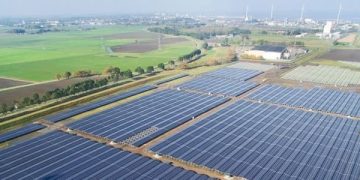Growth in Europe and Central Asia to Moderate to 3.3% in 2024 – World Bank
Economic growth in Europe and Central Asia (ECA) is projected to moderate to 3.3% in 2024, down slightly from 3.5% in 2023, according to the World Bank’s latest Europe and Central Asia Economic Update.
This slowdown represents a weaker performance compared to the region’s pre-pandemic average of 4.1% from 2000 to 2019 and remains insufficient for middle-income countries in the region to attain high-income status.
The deceleration in growth affects half of the ECA countries, including its two largest economies, the Russian Federation and Türkiye. However, Poland, the region’s third-largest economy, is expected to experience a strong rebound with growth projected at 3.2% in 2024, a sharp rise from just 0.2% in 2023.
Poland’s recovery is attributed to a resurgence in household consumption.
Key Growth Drivers
Per the World Bank, private consumption, supported by fiscal policies, remains the primary driver of growth in the region. Factors such as rising real wages, increased social transfers, and robust credit growth are bolstering domestic demand.
However, weak external demand, particularly due to subdued economic activity in the European Union, continues to pose challenges.
Inflation Trends
Median annual headline inflation in ECA countries declined to 3.6% by August 2024, from 4.6% at the end of 2023, although it remains above the 2.7% average seen in 2018–19.
A reduction in goods inflation contributed to the decline, but services inflation stayed elevated due to rising labor costs across the region. While some central banks began reducing policy interest rates, these cuts were modest amid cautious policy stances.
Fiscal Challenges
Most ECA countries, the World Bank’s Europe and Central Asia Economic Update report notes, postponed fiscal consolidation efforts in 2024 as government spending surged, outweighing revenue gains.
Key contributors to the increased spending included hikes in public sector salaries, pensions, minimum wages, social benefits, and defense budgets.
The World Bank report underscores the need for structural reforms to accelerate growth and address persistent challenges, including fiscal imbalances and inflationary pressures, as the region navigates a fragile global economic environment.








